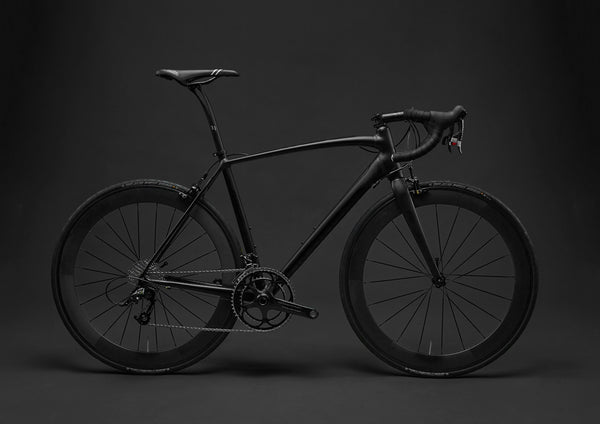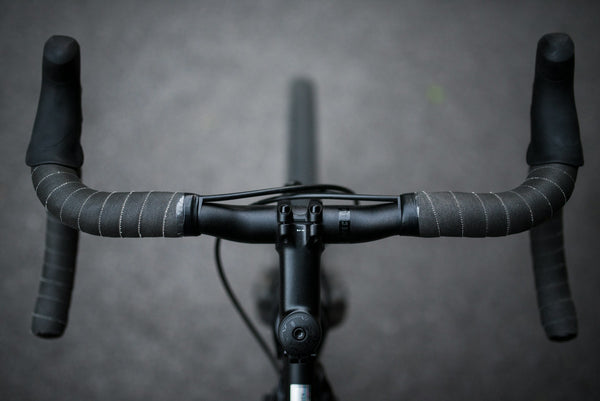Even though we’re barely through the first two months of the year, professional racing is well underway. The season seems to start earlier every year with riders heading to Australia and the Middle East to compete in those warmer climes during January and February.
But the Cycling Spring Classics on the men’s calendar officially begin with Omloop Het Nieuwsblad in Belgium, which already took place on February 24 this year. Somewhat predictably it was won by Team Visma Lease a Bike (formerly Jumbo Visma), but somewhat unpredictably, the winner was longtime domestique, Jan Tratnik. His win was the result of their strength in numbers since teammate Wout Van Aert took third place.
Van Aert did return to his accustomed place as team leader with a win the following day at Kuurne-Brussel-Kuurne, perhaps foreshadowing what we can expect from Visma Lease a Bike in the coming weeks of spring racing. Or can we? Winning the first races of cycling’s spring classics is definitely prestigious, but it can also indicate the rider is peaking too early. And it has to be noted that many of their strongest one-day competitors, like Mathieu van der Poel and Tadej Pogačar weren’t racing this opening classics weekend.
2024 Spring Classics Schedule
Now that Omloop Het Nieuwsblad has kicked off the classics season, the races will be coming thick and fast. The first weekend in March is highlighted by the magnificent Strade Bianche. Though a relative newcomer to the classics season, the Tuscan race is a highlight for many riders and fans. It will be the first race of the year for former winner Pogačar and defending champion Tom Pidcock will be on hand to attempt to retain his crown.
Following Strade Bianche, the peloton splits off to go race either Paris-Nice or Tirreno-Adriatico, the first major stage races of the European calendar. Then on March 16th, we can all look forward to the first Monument of the year, Milan-Sanremo. This year there is a fairly significant change to the race: it is only 288 km instead of the usual 300+ km. That’s because the powers-that-be in Milan have finally succeeded in moving the start of the race outside of Milan. Instead of starting in the shadow of the magnificent Milan Duomo, the race will start in Pavia. Though a beautiful town, we can help being a little sad to lose the majesty of the procession out of Milan, though to be honest, we suspect the riders won’t mind not having to avoid the city cobbles and dangerous tram lines that crisscross the center of Milan. It will be interesting to see whether the shorter distance opens up winning opportunities for more riders.
Belgian classics take center stage
With the Belgian Classic Brugge-De Panne on March 20th, the sprinters get to stretch their legs ahead of the E3 Saxo Classic on March 22nd really heralds the start of the most important cobbled classics of the season. Wout Van Aert has won it the past couple years, and will be looking to make a mark again.
Then on March 24, Gent-Wevelgem takes the riders through Flanders Fields, the area where much of the worst trench warfare occurred during World War I. The grim weather conditions that often punctuate the race make it easy to imagine the suffering.
Flemish Holy Week then continues with Dwars door Vlaanderen on March 27th before we finally reach the next Monument of the season at the Tour of Flanders on March 31st. Though a prestigious race to win, many of the top contenders for the Tour of Flanders and Paris-Roubaix will skip the mid-week race to minimize fatigue and avoid the possibility of suffering an injury through crashing.
The Hell of the North
Though if you were to ask a Belgian professional which race they’d prefer winning, they’d most likely tell you Tour of Flanders. With its cobbled bergs, deep history, and home turf advantage, it is the Holy Grail for most Belgians. But for most American cycling fans, the ultimate cobbled classic has to be Paris-Roubaix, which takes place the weekend after Flanders. The flatter race profile and apocalyptically bad cobbled sections make it the highlight of the cobbled classic phase of the season.
It is also the third Monument of the year, which makes a victory, or even a podium, at the race a highlight of any rider’s career.
Segue to the Ardennes
Up until now, most of these races will have had a similar start list with lots of the same riders participating. In fact, Paris-Roubaix often acts as the last race of the first part of the season for a large part of the peloton. That’s because it’s a rare talent who can hope to perform well on the rough cobbles of Northern Europe, and then also be competitive in over the sharp climbs that typify the three races that make up the Ardennes triple crown: Amstel Gold, Flèche Wallonne, and Liège - Bastogne - Liège.
If you are a stickler for accuracy, you’ll probably point out that Amstel Gold isn’t actually taking place in the Ardennes. And you’d be right. In fact, of the three races, it is the one that riders who hoped to do well in the cobbled classics might also add to their race calendar before taking a spring break. Wout Van Aert has won it in the past, and last season, Tadej Pogačar won it after having also won the Tour of Flanders. Pogačar also then went on to win Flèche before crashing out early in the race at Liège, depriving us of the opportunity of how he and Remco Evenepoel would have delt with each other to win the race.
These Ardennes races represent the final major series of Spring Classics for the season. The mid-week Flèche Wallonne is usually the shortest of the three, and uses multiple ascents of the fearsome Mur de Huy to wear the riders down. The final time up the short, super steep climb is tactical slow-motion sprinting at its best. The race winners usually have a similar profile of being able to climb and sprint well. Riders like Pogačar, Julian Alaphilippe, and Marc Hirschi have been recent winners. But the king of the Mur for years was now-retired Alejandro Valverde who won there an incredible five times.
Valverde also won Liège – the fourth Monument of the season – four times, a statistic second only to the great Eddy Merckx who won it five times. The past two seasons, Remco Evenepoel has dominated at Liège, attacking from so far out, he makes a peloton full of the best professionals in the world look like a bunch of junior racers. It will be interesting to see whether he can make it three in a row. The start list isn’t finalized at this point, but we can at least hope riders like Pogačar, Pidcock, Ben Healy, and Matej Mohorič will be able to put up a good fight.
Conclusion - 2024 Spring Classics Schedule
Though it may be a little more difficult to find broadcasts of all the races you want to watch this season, these renowned 2024 Cycling Spring Classics should be fairly easy to find. And it will be totally worth tracking them down because it is perhaps the only time of year you can see top Classics specialists battle regularly with each other, and then also with stage racing specialists.
With riders like Pogačar, Evenepoel, Van Aert, and van der Poel to entertain us, we are in a golden age of cycling where youthful panache encourages long-range attacks and unbelievable performances. It’s a lot of fun to watch, so make sure you set your alarms ahead of race days!
You may also like our article on Grand Tour Cycling.
































































































































































































































































